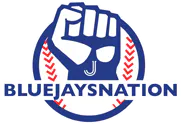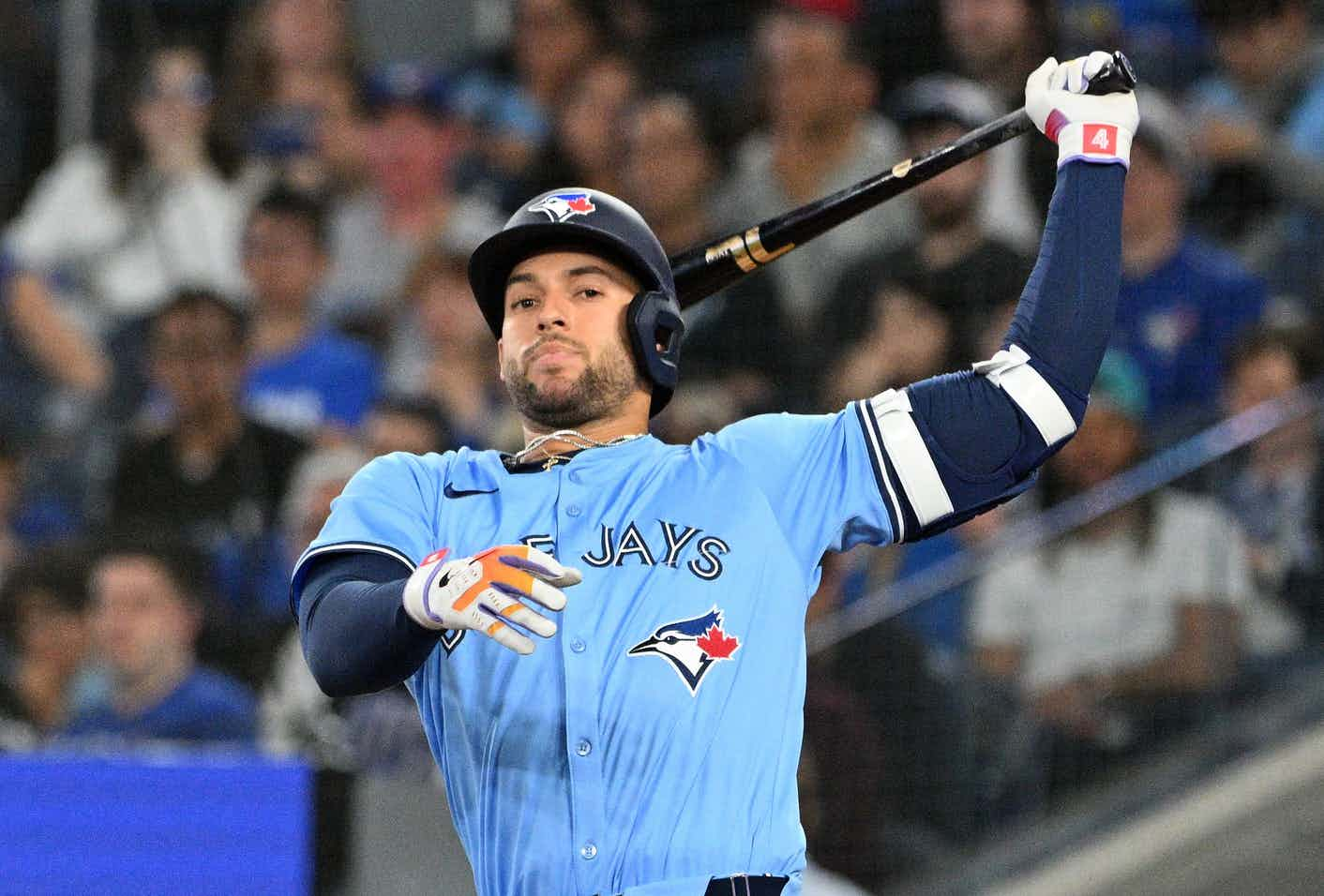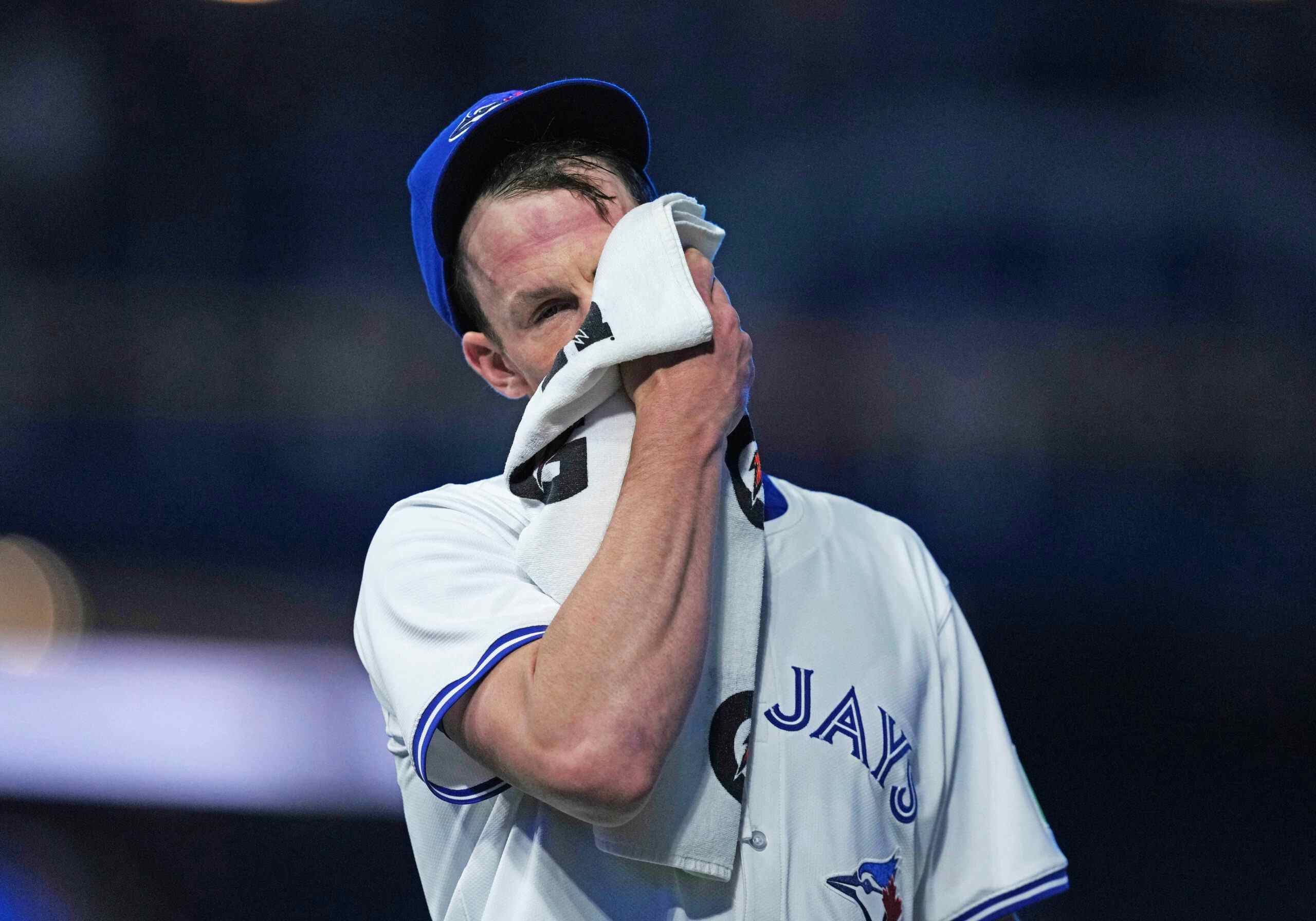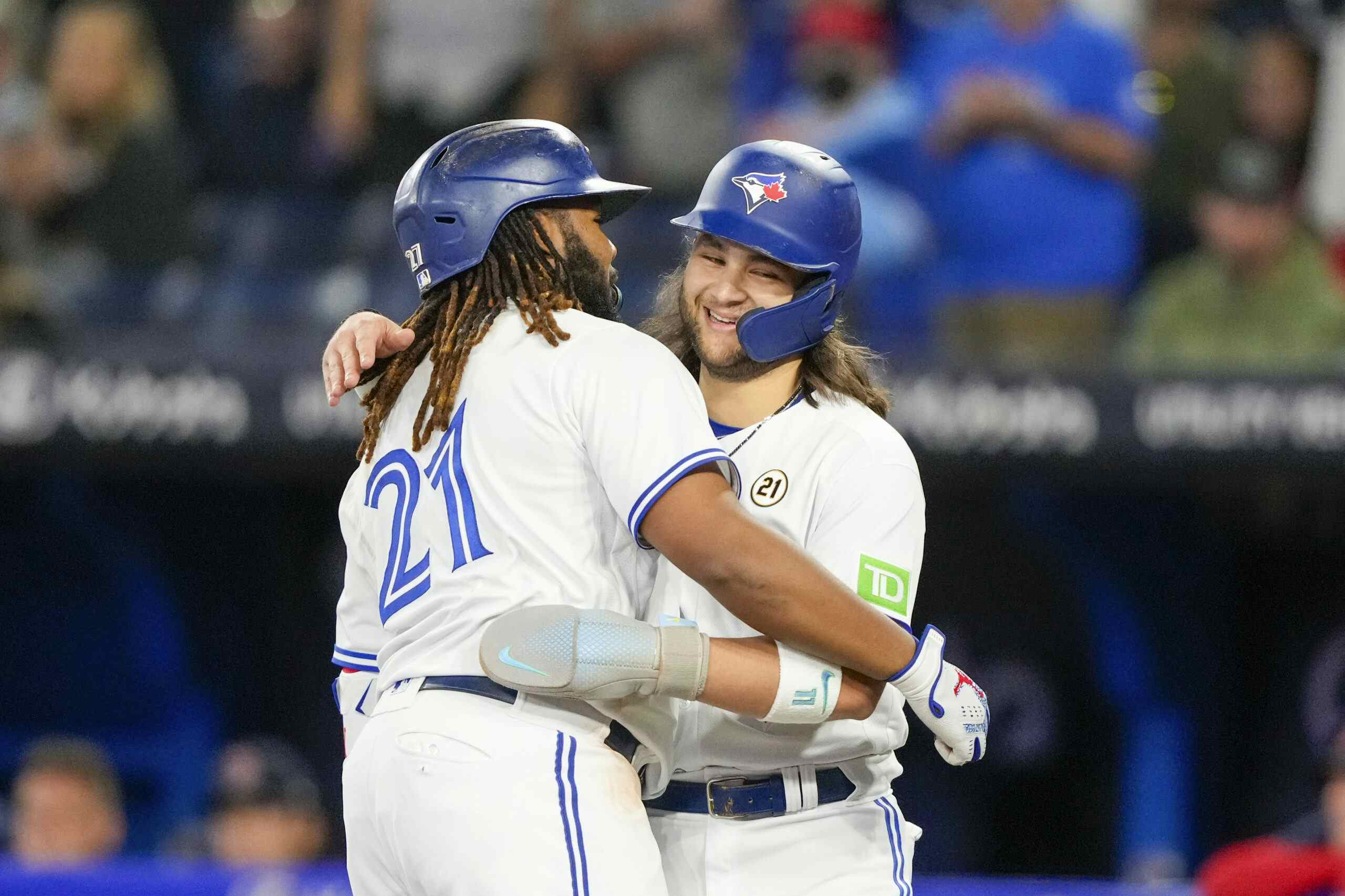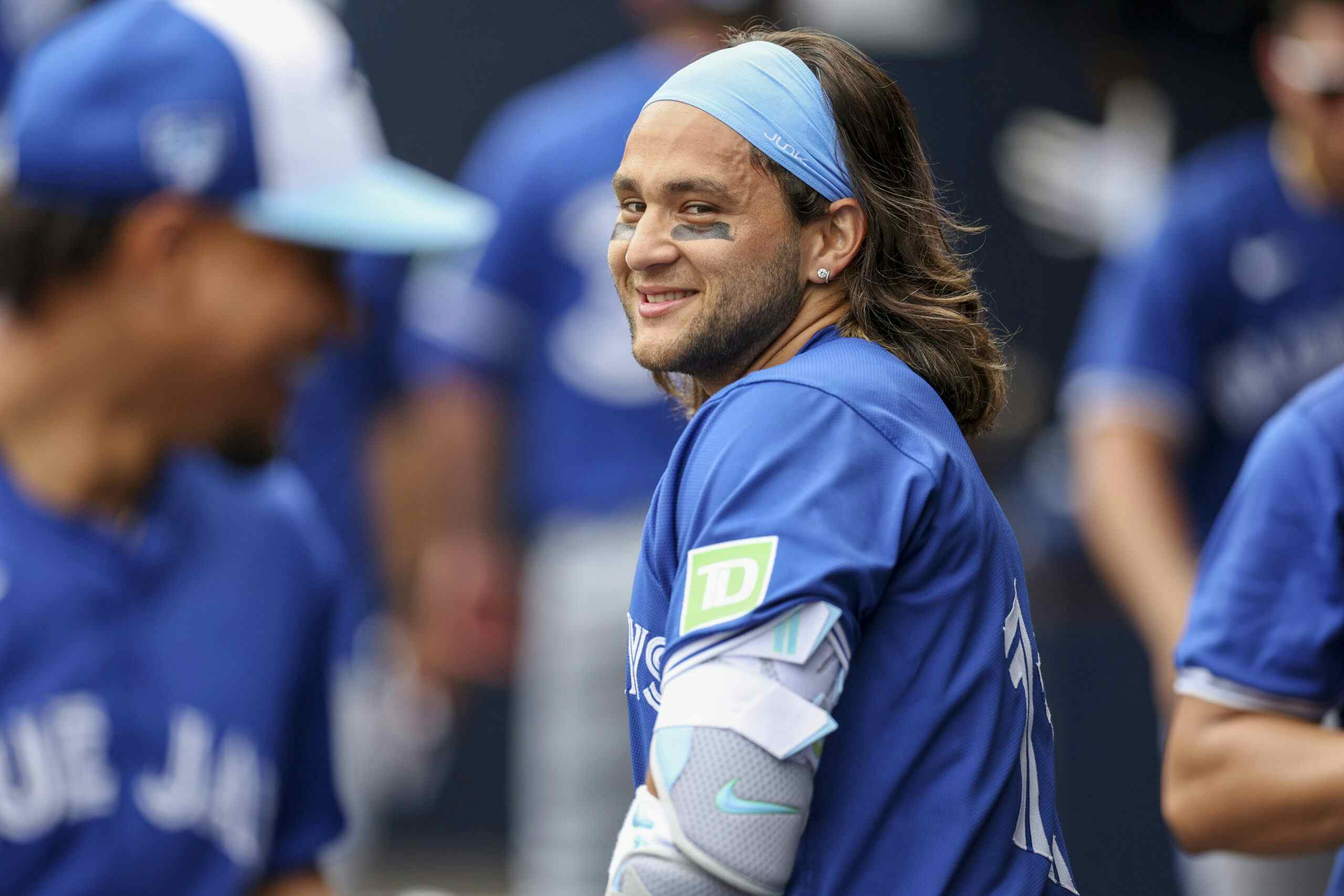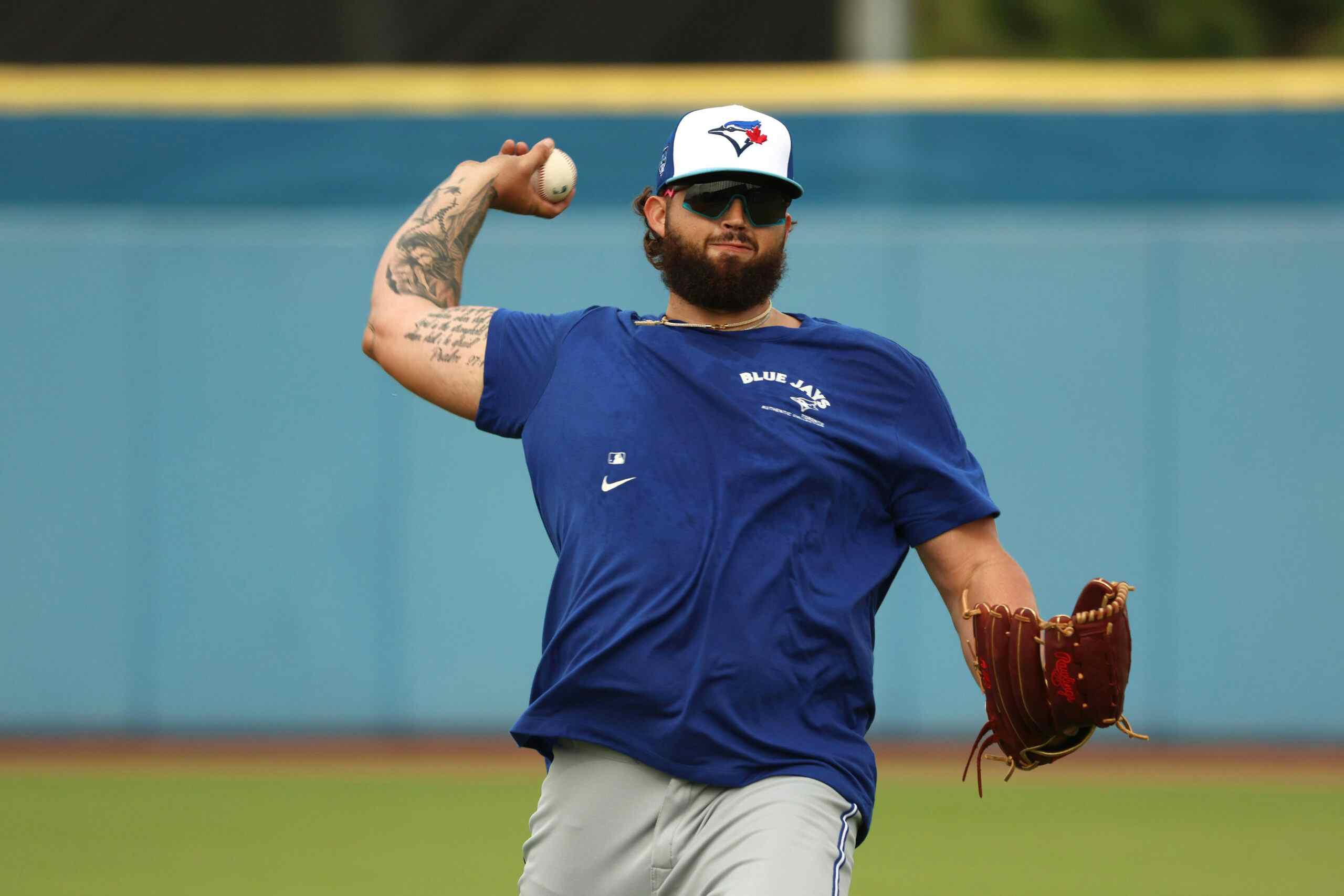Fowles: “Thanks, Dad”: Appreciating the Complex Simplicity of John Gibbons
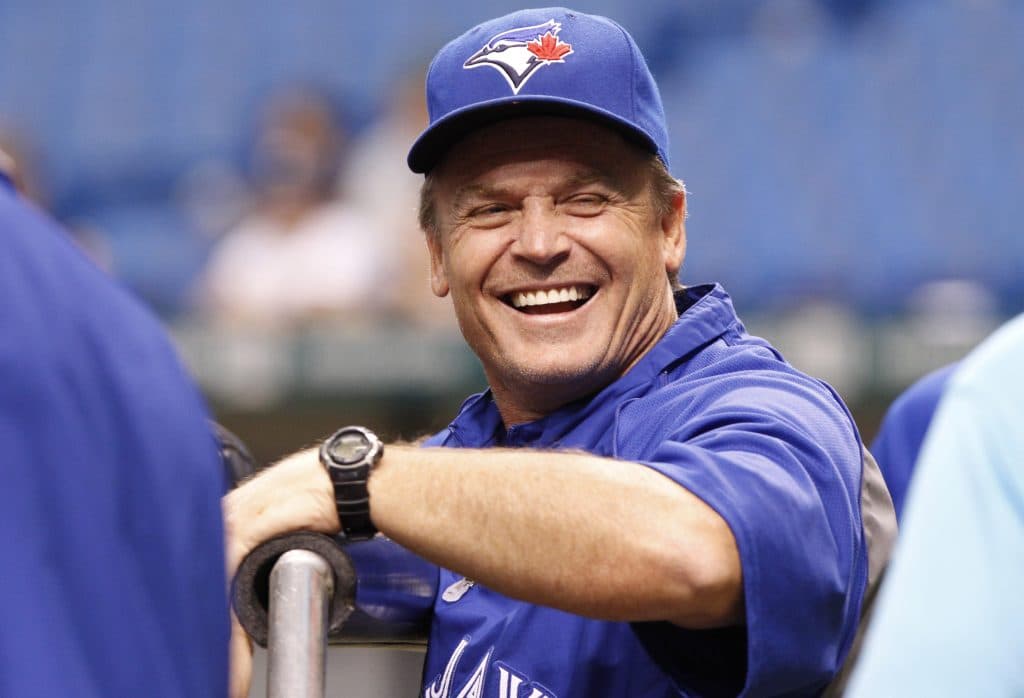
“Managers live in the world of the intangible, and John Gibbons is just about as intangibly brilliant as it gets.” –Andrew Stoeten
Last Monday morning, just after nine AM, there was a scrum outside of the Blue Jays’ clubhouse in Dunedin. It featured manager John Gibbons, in his eternally chilled out and carefree way, updating reporters on the playing status of Josh Donaldson and Devon Travis, both of whom are recovering from injury. Gibbons was admittedly a little bit lost on the scheduling details, saying it was all written down inside, but then took the opportunity to pull both Travis and Donaldson in front of the camera to clarify when and where they would be on the field.
It was an impromptu, comical, and altogether adorable moment, with Travis quipping, “I get to be a real baseball player,” and Donaldson closing out his charismatic appearance with a “Thanks, Dad.” Through the laughter, literal back patting, and casual half hugs, it seemed like there was a lot of love in those two broadcasted minutes. Jovial, and lightly ribbing each other, they looked like members of a genuine family.
The whole amusing tableau unintentionally presented good optics during a week that it was reported Toronto Blue Jays manager John Gibbons signed a contract extension with the club, one that maintains his spot in the dugout for two more seasons, and offers a subsequent option for 2020. For many fans of this team the mutual commitment was a sigh of relief—over the four seasons since his return to Toronto, Gibby has evolved into the beloved patriarch of this team, a (mostly) tranquil leader who brought his boys to two consecutive postseasons, all while crossing his arms over his chest and leaning back in his metaphoric deck chair.
I’ll admit here that when I was growing up, and while my baseball fandom was growing along with me, I never thought too much about managers. I never really considered their energy, their personality, their leadership, their strategy, or their importance in shaping a winning team. Like many young fans of this game, I just wanted to see my favourite slugger hit the ball hard, or my favourite outfielder snag a close one on the warning track. Sure I had a youthful admiration for Cito Gaston, like so many of us did, but I was perhaps too young at the time, and later too unformed and casual a fan, to understand how important he was to give him his due. For a long time the man who made the decisions from the dugout didn’t much matter to me, sort of a key yet invisible hand, just a face in the daily scrum, a figure that played a pivotal role yet generally evaded high profile fan recognition
In that sense, the career timing of John “Gibby” Gibbons made him the first manager I ever genuinely cared about, and perhaps more importantly, eventually came to fan-love in the theatre that is this game.
There is, as they say, just something about John Gibbons. Born to a United States Air Force colonel in Montana, and raised primarily in Texas, Gibby is all finger guns blazing and rough-around-the-edges-yet-soft southern charm. His Canadian connection is that he had his very first Little League at bat north of the border when his family was stationed in Labrador, and his eighteen game major league career featured a 1986 World Series win for the New York Mets, where he acted as bullpen catcher. After an initial managerial stint with the Jays from 2004–2008, Gibby returned to us in 2013, the very same high pressure, high expectation season prefaced with a blockbuster trade with the Marlins, and the acquisition of Cy Young Award winner RA Dickey. (The last place team in the division, they disappointingly finished 74–88.)
It is true that the performance of Gibbons The Manager has at times been controversial amongst the fanbase, though the occasional online roar of “Fire Gibby” has always confused me, personally. Gibby The Person, on the other hand, has in recent years proved to be a generally comforting, entirely gif-worthy caricature. He is all at once familiar and inexplicable, like you’ve known him your whole life, and yet it remains hard to unpack his enigma. He’s become the stereotypical dad figure, the guy in the corner who keeps his cool, but will eventually saunter out and help you fight your battles when pushed to the wall. While certainly far from perfect (his 2016 comment proposing the team “come out wearing dresses tomorrow” being the most notable evidence in recent memory,) the 54-year-old often seems so calm as to be near comatose, his body language and demeanor signifying a stress-free presence that many anxious baseball fans find soothing in the face of struggle and strife.
This is not to say Gibby evades flaw, or that his career hasn’t had his fair share of hotheaded outbursts—there have certainly been controversial instances that include altercations with umpires and players. (Last August opinions on some words exchanged in the dugout with Josh Donaldson filled our feeds, and thankfully ended on a comical note.) But maybe, like so many of us, Gibby is generally relaxing with age, something that seems to be working for him. On any given game day, he’s got that signature lean, and the words he shares on his colleagues and his players more often than not have a familial gentleness to them, a familiar fatherly tone of subdued pride, faith, and belief. He gives members of his roster delightful nicknames (it always killed me when he referred to Ben Revere as “Benny”), defends them and pushes back in the press when necessary, and doesn’t put too much stock in a few bad days. I’ve previously conjectured that he’ll hand the ball to a pitcher who is faltering, if only to aid in his confidence and get him back on track, and he once said, quite beautifully, “When hitters are struggling, and you give up on them, then where does that get you? Nowhere.”
This year, at Jays spring training in Dunedin, I had the opportunity to shove my humble tape recorder in Gibby’s face for the very first time. He was, on the surface, exactly as I assumed he’d be—relaxed, affable, and altogether charming. He’d say nothing and yet still say quite a lot. In that now iconic state of “leaning back,” he was the cool and collected dad figure I’d long imagined, the kind you believed would never be mad at you (but maybe just a little disappointed.) If what fans want most—after wins, of course—is for their beloved team to look like a close-knit family, Gibby feels like a good choice to sit at the head of the Blue Jays’ table.
Recent articles from Stacey May Fowles
